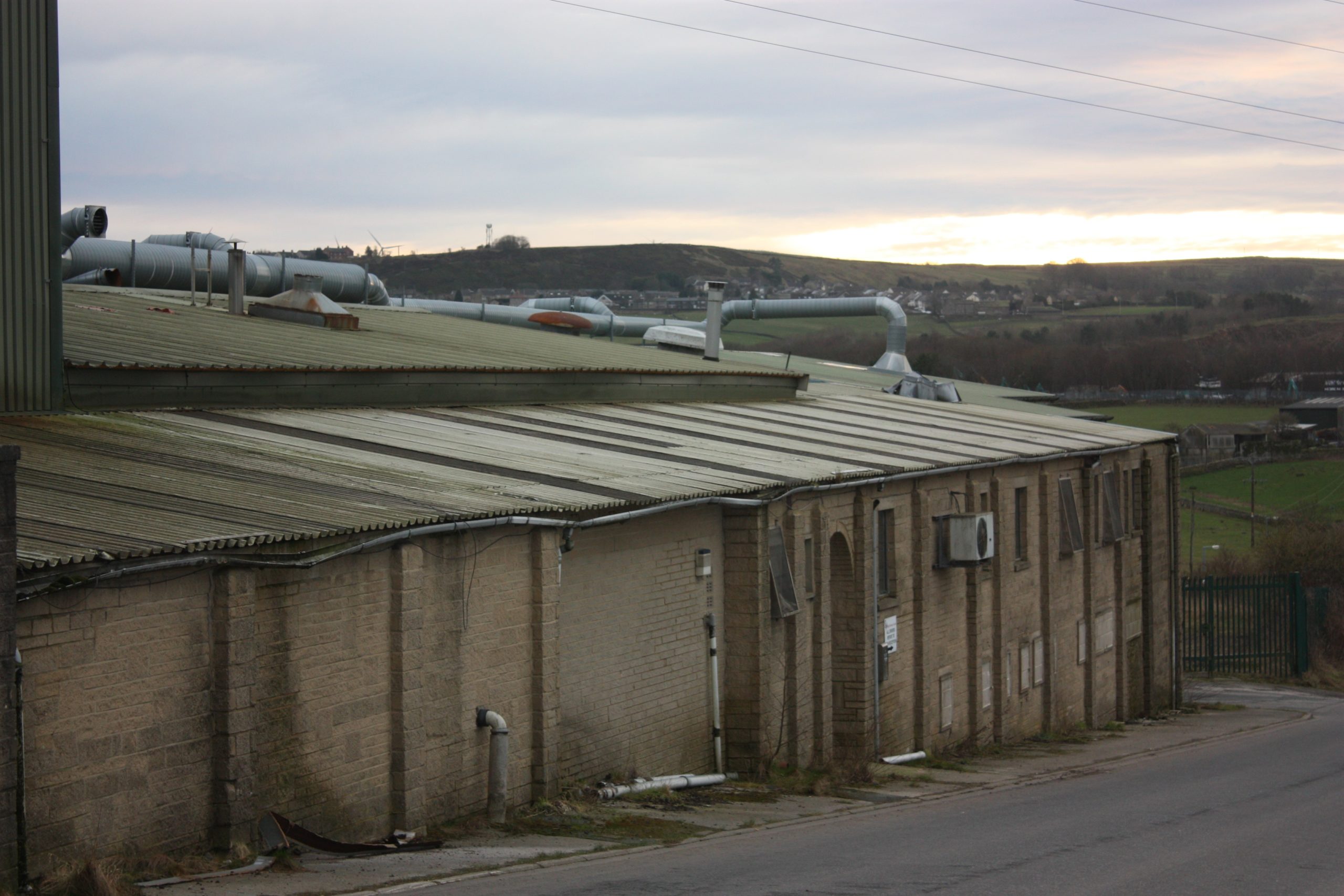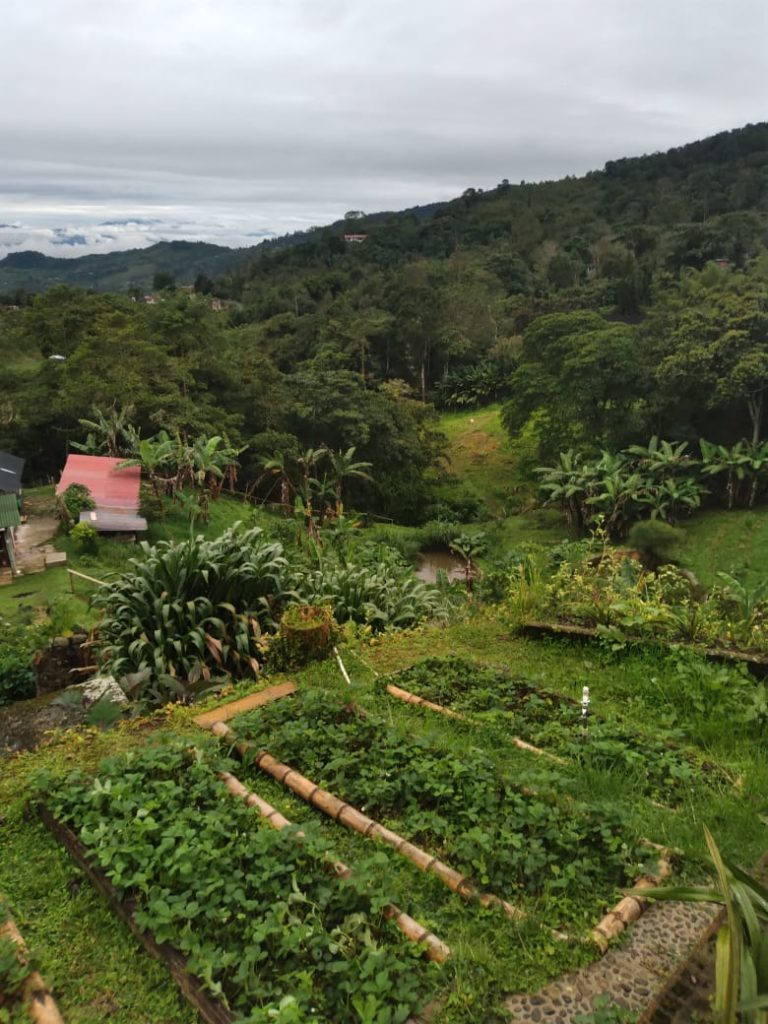The Chicken Factory Stench of Mining in Colombia
MY VILLAGE SHARED THE SMELL OF ITS NEIGHBOURING VILLAGE because of a chicken processing plant in a nook of the valley. The stench of its eviscerations were not masked by manure blowing in the same direction on its most pungent days, which along with its unsightly congealed orange fans, gets my vote to be closed despite myself being a continent away due to the repugnance I remember it with. Why not instead build a coliseum like cockfighting ring in the village hall? Investors welcome, bullfights on the Bowling Green next. The misery upon that place was on its outside, as rarely did I see its workers and I never met anyone with a connection to the building. Nor was it discussed as a career path or even mocked as one as schoolchildren did with becoming a bus driver. The presumably minimum wage it offered aside, the need to escape ennui drove people to work there and I have found that to be the case here too, though more pronounced.

An Abattoir in the UK
In their sun-beaten town, the pulmonary scarred miners of Cesar work for the multinational equivalents of RL Chicken and Sons*, where comparatively the employment dwarves that of my village in being akin to every third person lobbing off a chicken head for their livelihood. The village is called La Loma and mining is a prospective career here, with billions being carted out through its dustbowl roads and so too the promises of its regeneration, in which one need only look at its town hall of stalactite pillars to wonder if its disrepair is a long game for the next drilling site. I look at the dog I got from there, knowing the likelihood that he ever felt grass is the same as successive mayors being uninfluenced by the big money that bribed the five previous ones who are now incarcerated or absconded. Grapes under the sun sums of 12 million COP a month grew to vines out of reach come their harvest, while paramilitaries killing indignant villagers continues – because what really is a ´social leader´ in a town of 22,000 people as claimed of those assassinated?
I headed to the town over, which is wedged between two mines and in its background has mountains that separate Colombia from Venezuela. Emails to its state representatives received no reply, but give twenty minutes notice to the receptionist and you have an interview with the mayor´s office. Prodeco, of the Dutch multinational Glencore, had in that week announced closure of its mine
and with the employment of La Jagua consisting of 90% of mining (2015), the breeze carried with it the reek of fowl heads and an aridity of opportunities.
´What is happening in the mines is problematic for the region and for the area because they [the mines] have done it in an unusual or illegal way.’ Said Rita Cecilia, Gestion de La Jagua de Ibirico [council planning manager for La Jagua de Ibirico].
´They have left many families without being able to do anything, without work, without ways to support themselves. Many people are even sick, with back or lung problems.
´People are asking for the companies to reopen, because the people who are in need want the companies to stay to at least fix the economic situation as the closures were done without planning.´
On the adjacent, east side of the Colombian-Venezuelan border the poultry eyesores spurt not giblet, nor do their workers finish the day in soot coated clothes – oil dirties the hands of those in Arauca. Barren lagoons, dead cattle and device detonated explosions are inexcusable blights for the transitory employment brought by multinationals, according to one source.
´The community rejects oil exploitation because that brings poverty in the territory, because it dries up the waters, turns the land sterile and causes the cows to die, as well as wild animals, the Chiguiros.´ Said Esteban, ex-FARC member and leader of the political party associated with the Havana agreement in Arauca.
´Here we have a water source called the Lipa Lagoon. Many years ago it was very large, was a water source and had fishes. Today it is dry, the main reason being that at the moment there is an oil company exploiting it.
´But the government give them endorsement, they begin to explode and then when the Colombian people reveal themselves, for example social leaders who denounce (fracking and aggressive oil exploitation), they are assassinated for defending their territory.´
There is no railway network in Colombia and falling from my motorbike several times on the only road to Arauca had me cursing up and down its mountainous terrain. I had read of Colombia´s topography and drove surely its worst roads (a term to be used as loosely as the gravel, rocks and cement that forms them) and with these experiences decided road building should be a national priority, even if by conscription where everyone between 18 and 19 mandatorily has one year repairing them. The Canadian weed company that offers to concrete 1/10th of a village´s main road and leave the rest a dirt track will then no longer have leverage. Nor will a gold company highway-ing 1/19km of mire and gifting a printer to the local police station invite it to open the fete.
Greenery I beheld spanning the bucolic vista with rain cradled on all its vegetation, the air crisped to that where nature has been left to itself while every turn promised a banana tree or coffee plant; the road to Cajamarca is unlike any I have described in this account, and entering into its town without dread of my return, I had read it as the gleaming example of everything counter to the several village sized pocks left by multinational companies in Colombia.
The popular consulta is a mechanism where a town can reject the instalment of a multinational company to exploit resources, though the nation (government) own all the sub soils and determine their uses. The Cajamarcians are rooted to the town´s biodiversity and land that is rich in bearing crops, with them knowing little of mining, wherefore they voted 6000 NO votes to 76 YES for Angola´s mine.
´Our struggle goes because the soil is where we peasants [farmers] are, it is where we cultivate, where we have our house, our farms, where we make culture, so if they intervene in the subsoil, they damage the [upper] soil and we can decide locally and regionally on the soil matters.´ Said Yenny Gamez, Gestion for Cajamarca.
´It was thanks to the conscience of the peasants [farmers] who rejected many of the gifts that the multinational gave them, for example paintings, they financed productive projects and others, but we managed to understand that they only did it to stay in our territory to buy our consciences and increase their mining.´
´People said they do not want large-scale mining in the town and we are trying to include that in the land use plan, it is a big fight because the national government does not want us to do it, it wants the municipalities to continue providing their land for mining because they want the country to be a mining country, but we do not.´

A Farm in Valle del Cauca, Colombia.
So there I had it, a win for the villagers without any machetes being raised. I walked into a small shop that sold motorbike accessories and spoke to the man working there. He was about 25.
´Yes, I want the mine, you have to be with the companies and even if you do not want to, that is already a fact.´ He said.
´It is a company that employs a lot of people and there is a lot of unemployment at the moment so it will give a lot of employment.
´There are many people who are against mining but do not see the economic situation, when that company was working here, there was a lot of employment and money everywhere.
´A man who has five or six years more to live is against it but he has already achieved what he had to achieve and lived what he had to live, instead a young man who thinks about progressing, about having more options, they do not see that.’
And with his opinion I think of the intensity of ennui one must feel to desire to work in a mine when its entrance is overgrown with twenty thickets of nectar, orange and banana. Of that same mining that scars lungs, causes blindness, collapses workers under landslides or drowns them and scales and hunches their backs made me realize why the allure to escape that feeling has someone push the carts for these companies in a place like Cesar, where the money is the main incentive, but when it isn’t met they still continue to mine. So woe to the national trickle of work that provides one generation their escape, because simultaneously it is the doom that lay in wait for descendant artisanal miners of that area; these battery farms of golden geese becoming bleak and towering chicken mills.
*Name changed.
Written by Jacob Hamilton in May 2021